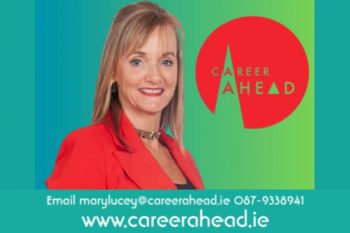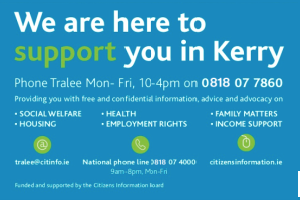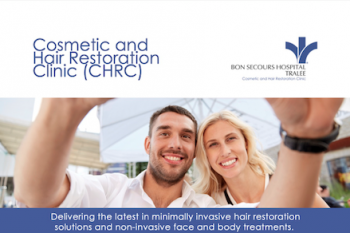
Dr Mary McCaffrey.
Dr. Mary Mc Caffrey, Medical Director MB FRCOG, Consultant Obstetrician – Gynaecologist at The Scotia Clinic, Tralee, answers the most frequently asked questions about the journey of surrogacy…
Who typically considers Surrogacy?
Surrogacy has traditionally been considered by couples where the woman’s health and pregnancy has been either unsustainable or very high risk, where the medical condition could be worsened or become life threatening i.e. severe cardiac disease, risk of severe pre-eclampsia or cystic fibrosis.
For women who cannot “hold on” to a pregnancy i.e. fibroids, surrogacy can be an appropriate form of assisted conception.
Surrogacy may also be an option for women who may have been born with no womb or have had their womb removed i.e. cancer.
What’s the qualifying criteria?
As with any assisted fertility process there are a wide range of factors and any intending couple are considered with regards to their health, age and previous reproductive history.
Our confidential consultation process at The Scotia Clinic enables each couple to reach the most appropriate decision for your fertility journey. The qualifying criteria is the same for both straight and gay couples.
Is the child biologically part of the couple or is it a donor?
There are a few scenarios to consider, firstly in some situations the mother eggs and father’s sperm are used to create embryos via IVF (in vitro fertilisation).
These embryos are then implanted into the surrogate’s womb (often referred to as a Gestational Carrier) who carries the pregnancy and delivers the baby or babies. In this situation the baby is biologically the couples baby.
In some situations, the couple may need eggs from a donor, usually unrelated to the surrogate. In this situation the donor eggs and male partners sperm are used in an IVF cycle and the embryos are implanted in the surrogate’s womb. The baby will be biologically related to the father but not the mother.
For gay couples, where there is no female partner, donor eggs will be used.
The law varies between countries in terms of the source of donor eggs and sperm that is permitted so this needs to be considered by a couple before choosing a treatment centre. Working through The Scotia Clinic we will best advise you as to the most appropriate surrogacy treatment partner.
What part of the process can take place at Scotia?
At The Scotia Clinic our expert team are an integral part of your surrogacy journey, with a clear step by step path for each couple.
This starts with an initial consultation at The Scotia Clinic to establish if surrogacy is an appropriate option and as part of the this journey our fertility counsellor will provide pre-treatment counselling.
Our team will guide couples in identifying the best clinic that will serve your needs. Presently, almost all surrogacy care takes place abroad. We can assess the pros and cons of each clinic for each couple.
We also have a network of lawyers who can guide you on the legal issues to bear in mind.
All the female and male fertility tests can be carried out at The Scotia Clinic. These tests include blood tests, semen analysis, and ultrasound scans.
Female testing:
For the female, these are tests such as AMH that helps predict the number of eggs that are likely to be produced during a treatment cycle.
Male testing:
For the male, a semen analysis and DNA fragmentation test will be carried out.
These tests can help a couple decide if the best course of action is to use their own eggs and sperm or if using donor eggs/sperm will give them a better chance of being successful.
In addition, all European countries are governed by the EU Tissue and Cell directive which has a panel of screening tests that are required prior to treatment.
All of these should be completed at the outset in the absence of no other test results being available. This avoids delays later in the treatment process when unexpected results may delay the process or add cost to the treatment.
For gay couples the semen analysis will help make the decision regarding which partner is more likely to result in a positive outcome. Preliminary testing of the EU bloods would also be advisable.
In what country will the surrogacy take place?
At present most Irish couples organise surrogacy abroad. Greece is the EU country with a legally structured surrogacy care package. Prior to commencing treatment, the legal contracts are ironed out in court.
This means that the baby can come home after the birth. The surrogate delivers the baby in Greece. Because Greece is within the EU couples can be guaranteed compliance with EU directives.
The Ukraine is not within the EU but many Irish couples choose to go there for surrogacy. However, parents must remain resident in the Ukraine for up to three months after the birth. These additional costs must be considered.
Irish couples have also gone to the US and Canada for surrogacy. The process is very well structured both medically and legally; however, there is much higher costs.
Currently most gay couples travel to the US or Canada where they can benefit from a highly established framework for same sex couples becoming parents through surrogacy. Where there is no female partner, there will always be the additional cost of donor eggs. All pre-surrogacy tests and consultations can take place in The Scotia Clinic.
At present for all couple’s surrogacy arrangements take place outside of the country. Where a couple choose to have the treatment will depend on their circumstances and their budget.
Costs
The costs of surrogacy to be considered and can be discussed with couples in a confidential consultation at The Scotia Clinic of surrogacy will include:
• Pre-treatment tests
• Cost of IVF cycle
• Legal Costs
• Cost of the surrogate’s pregnancy care
• Surrogacy in the US is more costly due to the medical costs
Can we return home soon after with the child?
This is unique to the laws of each country, in the Ukraine, the couple must stay in the country for three months after the child is born.
In Greece the process is much faster as the legal parentage of the child is arranged by court order prior to the transfer of embryos to the surrogate.
The length of time you must spend in the country after the child is delivered must also be considered in your overall costs.
Legal aspects to consider?
At The Scotia Clinic we have a network of lawyers with expertise in this area who can assist couples in their surrogacy journey.
Currently there is no regulatory framework for any assisted conception in Ireland. Surrogacy arrangements would be personal arrangements.
• To speak to the expert team in complete confidence contact The Scotia Clinic at Phone: (066) 7181100 E-mail: Reception@scotiaclinic.ie or Secretaries@scotiaclinic.ie www.scotiaclinic.ie












